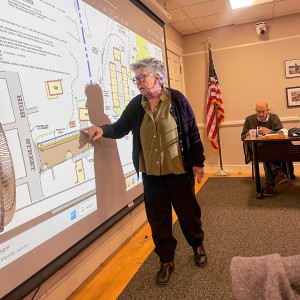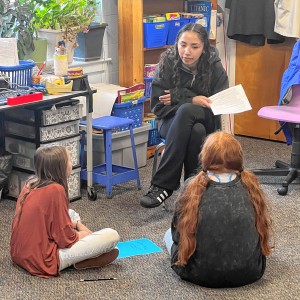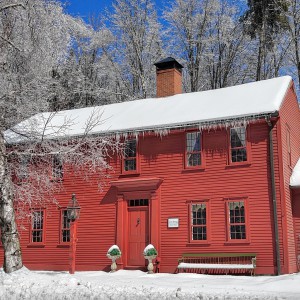Lionheart Academy, a public charter school that received $1.5M grant, using curriculum developed by Christian school
| Published: 05-18-2022 8:39 AM |
Since New Hampshire accepted the first $10 million of a federal charter schools grant, eight charter schools have been awarded funding, including five new startup schools, two expansions and one existing school that’s opening a second location.
In 2019, state lawmakers decided to accept $46 million to double the number of New Hampshire charter schools. The funding proved controversial, as Republicans saw the money as a way to expand education options for families, while Democrats argued that expanding the number of charter schools would siphon funds away from traditional public schools.
The Charter School Grant Program was launched in 2021 and the largest awards so far – all over $1 million – are going to new startup charter schools. Among them is Lionheart Classical Academy in Peterborough, which is using curriculum developed by a Christian school that “recognizes the central role of religious instruction in a liberal arts education.”
The school, which was started by a group of residents known as the Monadnock Freedom to Learn Coalition, is partnered with Hillsdale College’s Barney Charter School Initiative, which launches charter schools around the country that teach classical education. Lionheart will be using a K-to-12 curriculum developed by Hillsdale College, a conservative, non-denominational Christian school.
Lionheart Executive Director Kerry Bedard said the new public charter school will not be using the religious or faith-based aspects of the curriculum. Instead, it will focus on classical education, which has a focus on virtue and moral character, according to Hillsdale’s website, and includes study of liberal arts and sciences, fine arts and Latin.
“Families in the area are looking for a tuition-free option that offers strong academics and emphasis on virtues,” Bedard said. “We hear from parents that they want their children to work hard and academics are important. But what is driving their interest in Lionheart are the virtues that we are teaching like courage, responsibility, humility and perseverance among others.”
The school received a $1.5 million startup grant and is slated to open in the fall for kindergarten through fifth grade, with plans to add a grade every year, eventually becoming a K-to-12 school by 2029. The school plans to teach classical education, and has a projected enrollment of 150 students who are coming from public schools, homeschooling and private schools.
“We are so grateful,” Bedard stated in an email response to questions. “We know that finances are one of the most-complex and challenging aspects of opening and operating a public charter school. So we recognize that this grant is critical to providing the resources needed to start strong and allow for long-term success. The NH DOE grant application process is extensive and competitive so we were thrilled when we heard the news.”
Article continues after...
Yesterday's Most Read Articles
 Peterborough Planning Board approves 14-unit development near High Street
Peterborough Planning Board approves 14-unit development near High Street
 Peterborough firefighters continue fishing derby tradition
Peterborough firefighters continue fishing derby tradition
 Franklin Pierce students help foster literacy at Rindge Memorial School
Franklin Pierce students help foster literacy at Rindge Memorial School
 ConVal attorney answers withdrawal questions
ConVal attorney answers withdrawal questions
 Scott Bakula starring in Peterborough Players’ ‘Man of La Mancha’
Scott Bakula starring in Peterborough Players’ ‘Man of La Mancha’
 HOUSE AND HOME: The Old Parsonage in Antrim is a ‘happy house’
HOUSE AND HOME: The Old Parsonage in Antrim is a ‘happy house’
The curriculum of a proposed charter school is reviewed by the New Hampshire Department of Education and by the Board of Education before it can be approved.
At the New Hampshire Board of Education meeting in November, Lionheart Board of Trustees chair Barry Tanner said Hillsdale College will not be involved in governance or funding, or have any influence over the school other than providing the curriculum. Bedard says the school will follow Hillsdale’s curriculum as closely as it can.
Part of Hillsdale College’s K-to-12 framework is the 1776 Curriculum, covering American history from the colonies through the Civil War with an emphasis on the founders, which the college released in 2021 in response to The New York Times’ 1619 Project, which reframes American history with a focus on the role of slavery in shaping the country into what it is today.
Bedard said the school has a curriculum table available for parents that shows month by month what students are studying in every subject, and that the school wants parents to know what is being taught and what the students are responsible for learning.
Other startups that have received funding from the Charter School Grant Program include Heartwood Public Charter School in Jefferson, which emphasizes place-based and nature-based education; Gathering Waters Charter School in Keene and Northeastern Woodland Charter School in Conway, which both offer Waldorf education; and Spark Academy of Advanced Technologies in Manchester, which provides technical education to high-schoolers.
In Manchester, Founders Academy and MicroSociety Charter School were both awarded expansion grants of around $600,000, and CSI Charter School in Penacook received a replication grant of $339,552 to start a second school in southwestern New Hampshire.
With the first round of the Charter School Grant Program complete, the state is hoping to launch another application process in late summer or early fall, and another two over the next two years, said Nate Greene, administrator of the Bureau of Educational Opportunities at the New Hampshire Department of Education. The state currently has 31 approved public charter schools, old and new, which serve a total of 4,938 students.
The state Department of Education’s goal is to allocate startup grants to create another 20 new public charter schools in the Granite State over a five-year period. There’s no target goal for the total number of charter schools in New Hampshire, and Greene said the number will likely always be in flux, as many charter schools tend to close or change directions within the first several years of existence, even as others are launching. Some proposed schools decide during their planning phase that it’s not feasible to open a school after all.
“The charter school requirement allows communities to create schools with more flexibility in the kinds of innovations they can apply, but it doesn’t mean they will be successful,” Greene said. “I think a lot of it is driven by what are the local needs in the community where a group is looking to start a charter school.”
Nonprofits, groups of teachers or parents can apply to found a charter school, either by seeking local authorization from an existing school district or seeking approval from the state Board of Education. The charter school division reviews the applications, as does a legal team and then a peer review committee made up of charter school founders, administrators or board members. Each party is looking to see if the application meets the state criteria of a clear and meaningful mission, research-based curriculum and measurable goals, before it goes before the State Board of Education for approval or denial.


